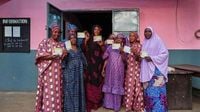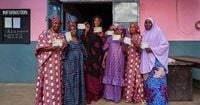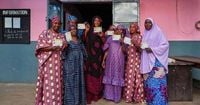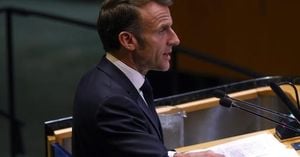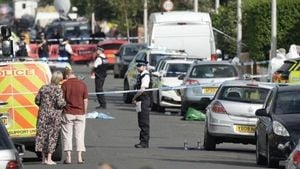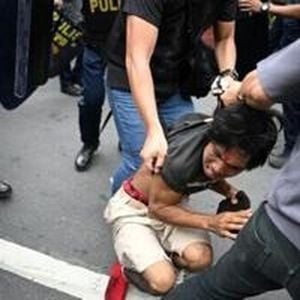On September 21, 2025, the people of Guinea headed to the polls for a constitutional referendum that could dramatically reshape the country’s political future. As provisional results rolled in the following evening, the numbers were striking: over 90% of voters had said ‘yes’ to the proposed changes, with a turnout of 91.4% across more than 80% of polling stations, according to Djenabou Toure, head of the Directorate General of Elections. Out of the ballots cast, 90.06% supported the referendum, while only 9.04% opposed it, easily surpassing the 50% turnout threshold required for passage. These results, reported by the Associated Press and other major outlets, have set the stage for a new chapter in Guinea’s turbulent political journey.
But what exactly does this landslide ‘yes’ vote mean for Guinea—a nation rich in natural resources but plagued by poverty, food insecurity, and a history of political upheaval? The answer, it seems, is as complex as Guinea’s recent history itself. The referendum’s most controversial provision clears the way for Gen. Mamadi Doumbouya, the country’s military strongman who seized power in 2021, to potentially run for president later this year. Although Doumbouya has not officially declared his candidacy, the new draft constitution allows junta members to seek office and extends the presidential mandate from five to seven years, renewable twice. It also creates a Senate, with a third of its members appointed directly by the president—changes that critics say tilt the playing field sharply in the junta’s favor.
For many in the region and beyond, the events in Guinea are part of a troubling trend. The country joins a growing list of West African nations—including Mali, Niger, and Burkina Faso—where military takeovers have upended civilian rule. The Associated Press notes that the referendum is being watched closely by international observers and neighboring governments, all wary of the precedent it might set in a region already battered by coups and democratic backsliding.
Yet the process leading up to the referendum has been far from smooth or universally embraced. Opposition parties, already on the back foot after years of political suppression, were largely absent from the campaign. In a move that sparked widespread condemnation, the military regime suspended Guinea’s three main opposition parties just weeks before the vote, effectively preventing them from organizing rallies or communicating with voters. Rights organizations have accused the junta of disappearing political opponents and silencing critical media voices. Last year, more than 50 political parties were dissolved in what the regime described as an effort to “clean up the political chessboard.”
Opposition leaders, left with little recourse, called for a boycott of the referendum, deriding the process as “a masquerade.” Their absence was palpable throughout the campaign. While Conakry, Guinea’s capital, buzzed with Quran readings, reggae concerts, and prayer gatherings in support of Doumbouya, the opposition’s voice was conspicuously missing. Supporters donned T-shirts and boubous—traditional flowing West African garments—emblazoned with Doumbouya’s image, gathering at neighborhood rallies that celebrated the military leader’s vision for Guinea’s future.
Despite the opposition’s warnings and the concerns of rights groups, many Guineans seem to have been won over by Doumbouya’s promises of progress and development. “We have seen many regimes here, but since the arrival of (Doumbouya), there has been change,” said Ben Daouda Sylla, a 30-year-old lawyer, in an interview with the Associated Press. He pointed to new roads and the recruitment of young people into civic services as tangible signs of improvement. “He is doing everything possible to ensure that Guinea moves forward.”
It’s not hard to see why Doumbouya’s message might resonate with a population weary of broken promises and chronic instability. Despite Guinea’s wealth of bauxite and other minerals, more than half of its 15 million people are living in what the World Food Program describes as “unprecedented levels of poverty and food insecurity.” For many, the hope for a more prosperous and equitable future outweighs concerns about the military’s grip on power—at least for now.
Still, the referendum’s outcome has raised significant questions about the country’s democratic trajectory. The Directorate General of Elections, responsible for both organizing and counting the votes, is a newly created body led by two officials handpicked by Doumbouya himself. This has fueled skepticism about the transparency and fairness of the process. Critics argue that the changes to the constitution—particularly the extended presidential term and the power to appoint a third of the Senate—are designed to entrench the junta’s authority under the veneer of democratic legitimacy.
When pressed about Doumbouya’s intentions, Gen. Amara Camara, secretary-general to the presidency, told the Associated Press, “Today, clearly the question is about the referendum vote. When the time comes, we will talk about it.” The ambiguity has done little to quell speculation that Doumbouya will seek the presidency once elections are scheduled, which is expected to happen later in 2025, though no exact date has been set.
Guinea’s recent history is a study in contrasts: a nation with immense potential, yet repeatedly stymied by political crises. Doumbouya himself came to power in 2021 after toppling President Alpha Conde, arguing that he was acting to save the country from chaos and to correct the failures of the previous government. At the time, he insisted he would not run for president. But as the draft constitution now stands, not only is he eligible, but the rules appear tailored to favor his continued influence.
As the dust settles from the referendum, the country faces a period of uncertainty. Will Doumbouya take the next step and declare his candidacy? Can the opposition regroup and mount a credible challenge in the coming elections, or will the political space remain tightly controlled by the military? And perhaps most pressing for ordinary Guineans: will the promised development and prosperity materialize, or will the cycle of hope and disappointment continue?
For now, the streets of Conakry remain alive with the energy of those who believe in Doumbouya’s vision. But beneath the surface, the fundamental questions about democracy, power, and the will of the people remain unresolved. Guinea stands at a crossroads, its future suspended between the promises of a new constitution and the realities of its troubled past.
